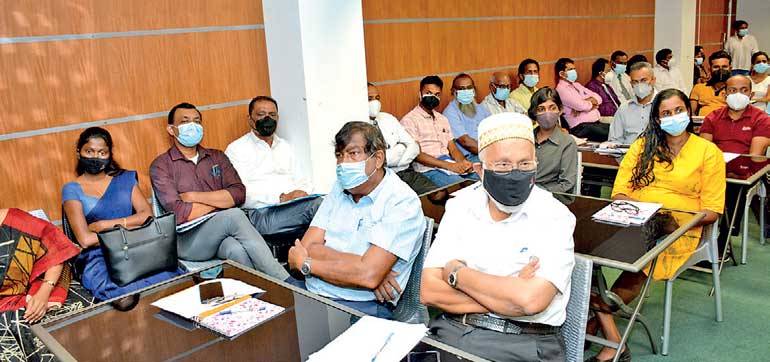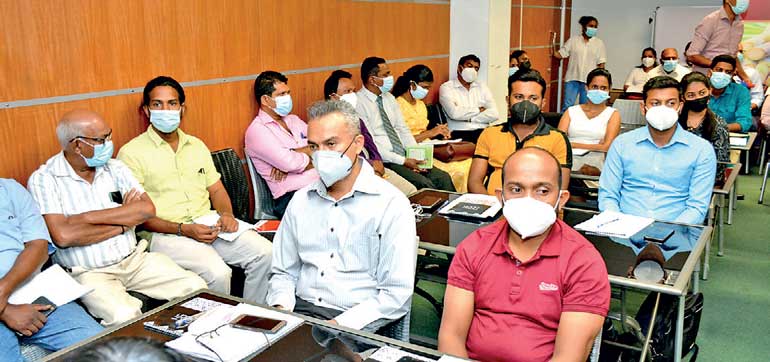Saturday Feb 21, 2026
Saturday Feb 21, 2026
Tuesday, 25 January 2022 01:38 - - {{hitsCtrl.values.hits}}
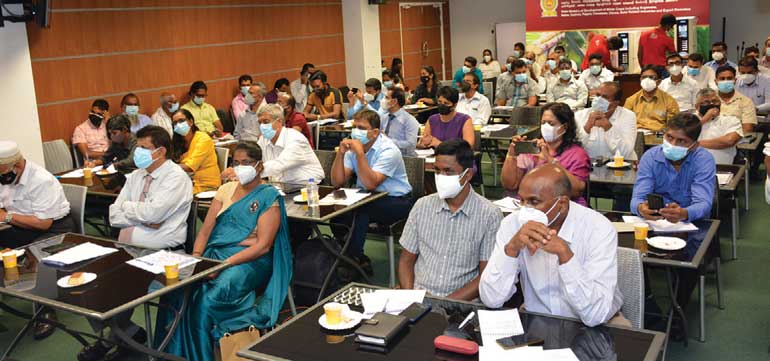

State Minister Janaka Wakkumbura
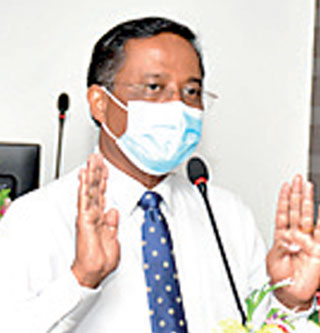
ASMP Project Director Rohana Gamage
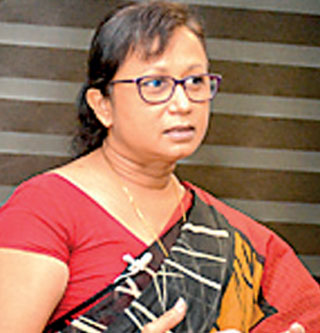
Monitoring and Evaluation Specialist Nirosha Nissanka
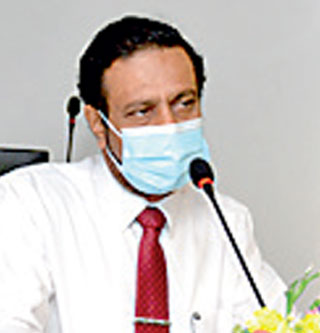
State Ministry Secretary Rohana Abeyratna
By Charumini de Silva
The World Bank-funded Agriculture Sector Modernisation Project (ASMP) has disbursed Rs. 4.8 billion among 769 prospective agriculturists including clusters to enhance their value chain developments in their outputs, processes under 10 identified sectors.
This was revealed on Friday at a general awareness on exporting of agricultural produce and certification of appropriate quality management systems acceptable to respective export destinations program. It was organised by the Development of Minor Crops including Sugarcane, Maize, Cashew, Pepper, Cinnamon, Cloves, Beetle related Industries and Export Promotions State Ministry for 50 proponents involved in agriculture-based farming, production, manufacturing for value addition and exporting.
ASMP was initiated in 2016 with an objective of supporting agricultural productivity, increasing market access and enhancing value additions of smallholder farms and agri businesses. It ends in June next year.
Since 2017, ASMP has awarded grants to prospective entrepreneurs to contribute and increase export revenue with the value additions in their products and processes. The major sectors and sub-sectors considered for grants are horticulture, spices, other food and non-alcoholic beverages, fisheries, aquaculture, coconut (non-kernel), coconut (kernel based), medicinal and aromatics, livestock, agriculture machinery and equipment solutions.
Agriculture has been an important driver of poverty alleviation. It is estimated that up to 15,000 smallholder farm households will directly benefit from the matching grants.
State Minister Janaka Wakkumbura highlighted the importance of strengthening the export sector given the economic challenges and called on the entrepreneurs to make the best of the facilities granted to improve their export products.
“Despite many challenges post-pandemic, the export sector showed its resilience once again to keep the economy afloat. Thus, you all are responsible as beneficiaries to accomplish the targets and return the favour to the country that provided such facilities amidst both local and international challenges,” he pointed out.
State Ministry Secretary Rohana Abeyratne asserted that quality, market and product diversification were key factors to become a successful exporter.
“Quality of an export product is very important as it represents the country. One bad product will cost all other good products in the market as people often tend to look from a single perspective. Therefore, always remember that you all are also ambassadors of ‘Made-in-Sri Lanka’ products,” he added.
He also said that steps are being taken to encourage direct exports with value additions and to explore opportunities untapped in Japanese and Chinese markets which have a lot of potential.
The State Ministry Secretary however was not very happy with the foreign mission support extended to the export community particularly for minor crops. “Although it is often reported that foreign mission’s commercial officers have helped the exporters, I think it was not sufficient or reflected in tangible value,” Abeyratne stressed.
ASMP Project Director Rohana Gamage pointed out that certification of products is an integral part of being a successful exporter, whilst calling on entrepreneurs to justify their value-added product quality through certification.
“Food culture requirements have changed and customers are concerned about health. They look for nutrient values, source of ingredients and sustainability of the brand. Large-scale firms that have already obtained certifications are threatened by new firms that have competitive products and that is why they discourage the certification process. Do not back out from the certification process, it is very important to be a successful exporter and to tap into a broader customer base,” he explained.
Monitoring and Evaluation Specialist Nirosha Nissanka made a presentation of the impact and progress of the ASMP, whilst a Value Chain Specialist delivered on common aspects of Quality Management System (QMS) requirements for different kinds of international food certifications.
In addition, senior officers of Export Development Board (EDB), Sri Lanka Standards Institution (SLSI) and a system certifying body Ind-Expo presented on export related matters, QMS certification requirements and perspectives at the session.
Pix by Upul Abeysekara
